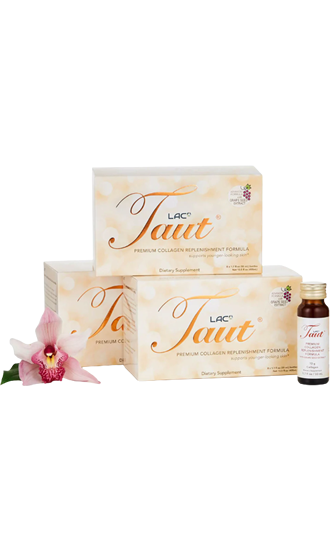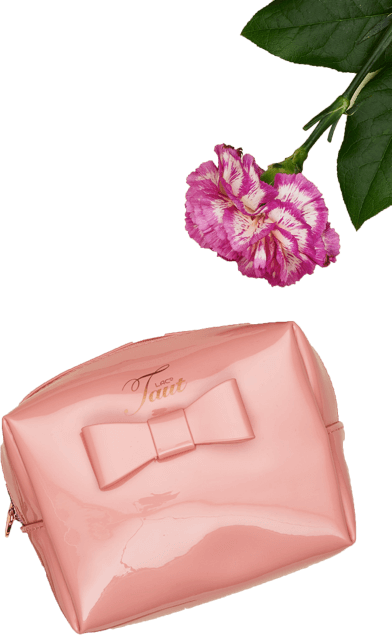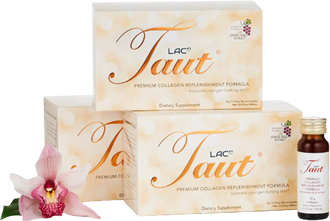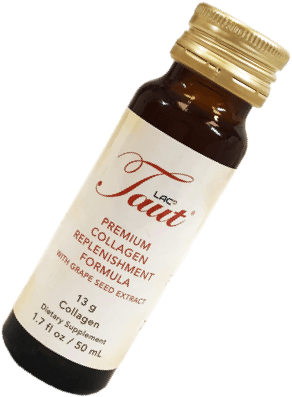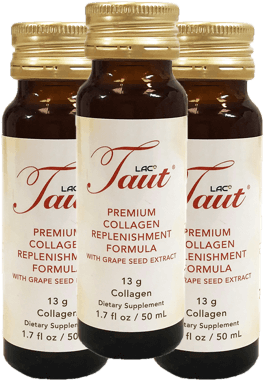Skin Problems Related to Liver Disease: Symptoms & Pictures of Rashes Explained

Your Friday-night martini habit isn’t the only thing connected to your liver’s health. This vital organ also plays a major role in how radiant and healthy your complexion appears.
Your skin is the mirror to your inner and outer health. Everything that happens inside shows on your skin, which may manifest as dullness, itching, or sagging for many people. You might already have some idea that your digestive system impacts your complexion, but have you ever thought about the liver's affect on your skin?
If you have ever suffered from a persistent itch, bruise, or discoloration on your complexion, you might have an issue with your liver. Itching, hyperpigmentation, and spider veins are just some of the possible side effects of liver diseases.
People may often envy those with clear, radiant skin. Besides a healthy diet and good protection from the sun, their genetic secret could be largely due to their super healthy liver function.
In this article, we’ll focus on this organ and how it helps to remove toxins from your body, and how that, in turn, may affect your complexion. Even more importantly, we will share information about the best things you can do to protect your liver and your skin from harm.
What Does the Liver Do?
This vital organ performs a variety of extremely important functions that help us stay healthy. Let's take a closer look:
1. Breaks Down & Converts Substances
The liver’s primary function is to produce bile which breaks down fats from a person’s diet, storing them or releasing them as energy when needed.
This organ also breaks down proteins into a substance known as ammonia, which is then turned into urea and released by the kidneys as urine.
Finally, it breaks down alcohol and medications.
2. Removes Toxins From The Bloodstream
The liver filters the blood carried to it by the intestines before releasing it to the rest of the body. Toxic substances like heavy metals are converted into less harmful versions and may ultimately be released by the body as waste.
3. Stores Vitamins & Minerals
Vitamins and minerals are stored in the liver and released when needed by the body. With the help of vitamin K, this organ aids in blood clot formation to keep you from losing too much blood in case of injury.
Nutrients are also regulated as it determines whether a nutrient should be stored, used, eliminated, or released back into the bloodstream.
4. Regulates Blood Glucose Levels
As it metabolizes carbohydrates, the liver also makes sure the level of sugar in the blood remains constant. If blood sugar levels become high, it removes the excess sugar and stores it in the form of glycogen. If blood sugar levels drop, it breaks down the stored glycogen in order to release more sugar into the bloodstream.
Why Is the Liver So Important?
This organ is important for a variety of reasons including:
- It keeps you alive and healthy. If it were to stop functioning properly, you would survive at most two days!
- It can regenerate itself completely, which is why you may donate parts of it to someone else, and it will have regenerated back to its original size within 8 to 15 days.
- It rids the body of harmful substances that may have a negative impact on your health.
- It plays an important role in a variety of functions (such as blood clotting or blood sugar regulation) that are necessary for overall health.
- It contains approximately 13% of your body’s blood supply.
Signs of Liver Damage On Your Skin
The first manifestations of an unhealthy liver often appear on your complexion as various skin conditions. Some of the first signs include:
1. Yellowing of the skin and eyes, or jaundice
This is caused by a build-up of bilirubin, a waste material, which is a result of your liver not metabolizing it correctly.
2. Eczema
This condition is characterized by itchy, flaky, and inflamed skin. Rashes on the face, hands, and feet, and the backs of the knees can also develop. Aside from itching and discomfort, eczema can be a sign of unhealthy liver function.1
3. Age spots
Age spots are sometimes called liver spots, but these actually are not caused by anything to do with this organ. They are manifestations of excess sun exposure.
4. Itchy skin (pruritus)
Very itchy skin, otherwise known as pruritus, can be caused by bile products being deposited in the dermis instead of being removed by the liver rash. Itching can be one of the first manifestations of cirrhosis.
5. Porphyria Cutanea Tarda (PCT)
Porphyria cutanea tarda is a condition that causes painful blisters, scarring, change in skin color, and sensitivity to the sun. It is caused by a build-up of proteins called porphyrins in the liver, which enter the bloodstream and wreak havoc on your complexion. PCT may require clinical treatment by a doctor.
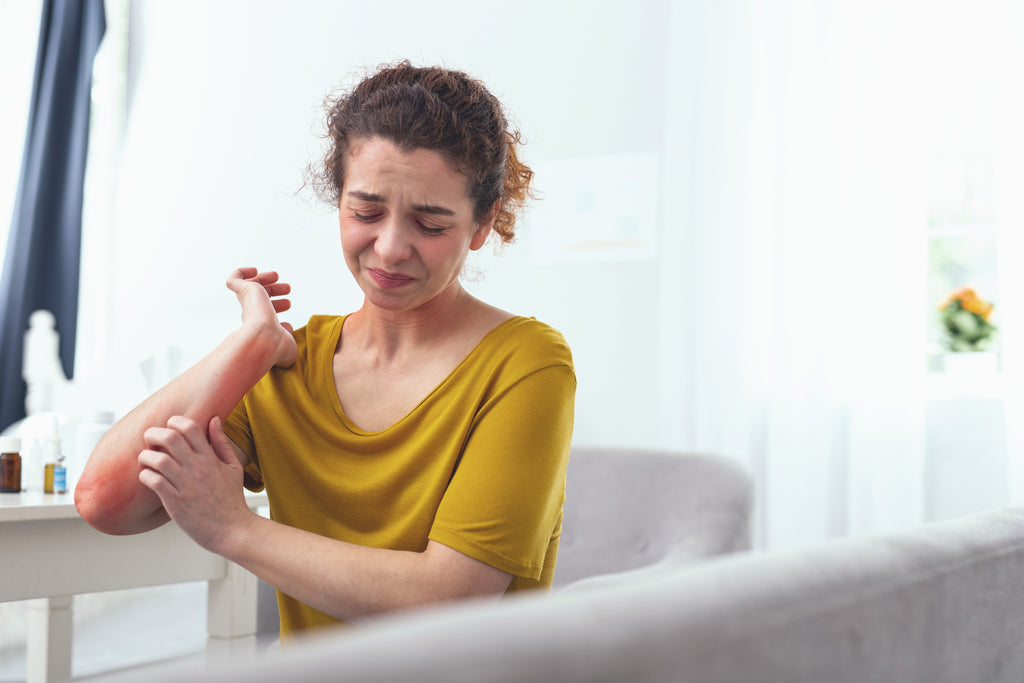
Fatty Liver Disease
This disease occurs when too much fat is stored in the cells of this vital organ. It causes symptoms like fatigue and abdominal pain.
Skin rashes and itching are common with fatty liver disease. Pruritus (itchy skin) can be a symptom that is rather resistant to therapy. Itching is often particularly bad on the hands and feet.
Other problems related to these kinds of liver diseases include:
- Spider angioma – These are collections of dilated blood vessels that typically appear on the face. They are reddish and can be slightly raised.
- Bier spots – Bier spots are darkened, irregularly shaped spots that disappear when pressure is applied, unlike a persistent red spot.
- Bruising or Bleeding – a liver that is not functioning correctly may cause excessive bruising or bleeding.
- Palmar erythema – This is a reddening of the palms and fingertips often due to liver disease. This is uncomfortable but should not itch.
Chronic Liver Disease
Aside from skin issues, chronic liver damage can lead to a number of serious and even life-threatening diseases.
Viral Hepatitis C
Hepatitis C is the inflammation of the liver caused by the infectious hepatitis C virus. This virus is usually spread due to infected needles and drug use. Alcohol use can worsen the effects of hepatitis C.2
Chronic hepatitis C can begin to spread with little to no symptoms in the early stages but develop into severe disease and cirrhosis over time, which will require clinical treatment. Chronic fatigue is one of the first physical manifestations of hepatitis C.3
Hepatitis A, B, and D are similar diseases that affect this vital organ, but these are preventable by vaccine.
Wilson’s Disease
This is an inherited disease that causes copper buildup in various vital organs.
Cirrhosis
Excessive alcohol consumption can cause harm by turning healthy tissue into scar tissue. This is called cirrhosis. Cirrhosis can lead to jaundice or other diseases that make your skin itch.
Liver Cancer
This type of cancer can occur in people with liver diseases such as hepatitis B or C, fatty liver rash disease, cirrhosis, or diabetes.
How Can You Protect Your Liver?
To reduce the risk of the hepatitis C virus, cirrhosis, pruritus, infection, or other conditions related to this organ, the best possible thing you can do is to avoid foods and drinks that can lead to liver diseases. Paper money skin can also be a symptom of liver disease, causing thin, wrinkled skin often resembling old paper.
Your complexion will feel the benefits too as you will minimize the likelihood of discomfort, itching, or bruising. These include:
- Alcohol – Excessive alcohol consumption can trigger inflammation, producing toxic chemicals, and causing scarring to the liver.
- Soft drinks – Excessive soft drink (soda) consumption can lead to diseases.
- Processed foods – Processed foods often have unhealthy fats (trans fats) and preservatives (like nitrates) that can lead to diseases.
- Bad oil and fats – Trans oil, hydrogenated oil, and trans fats can cause extra fat to be deposited in the liver.
- Bad sugars – Glucose, fructose, and artificial sugars (like Splenda, for example) can also lead to fatty buildup in the liver and itching skin. However there are alternatives, for more information read our blog about healthy sugar.
And, Take Antioxidant-Rich Supplements...
While maintaining a healthy lifestyle is key to protecting yourself, there's no harm in giving your health an extra boost with the right supplement.
Dr. Masquelier's French Pine Bark Original OPC is a supplement that provides you with 3-way action protection. Trusted for generations, this scientifically proven supplement is packed with powerful antioxidants that are rich in antibacterial, anti-aging, anti-inflammatory, and anti-allergic properties that are sure to help you achieve your skincare goals.
Enhance your youth, vitality, quality of life, and of course, your skin with Masquelier today!
When To Visit A Doctor
If you suspect you may be suffering from any infection or disease related to your liver, visit your doctor for more information, professional medical advice, and clinical treatment. Recognizing signs of liver issues early can prevent further complications.
Viral hepatitis can be treated, once your doctor has reviewed your symptoms they will usually prescribe antiviral drugs to treat the infection.
Cirrhosis requires treatment for alcohol dependency, weight loss, medications, and long-term management. Cirrhosis is not reversible, but if treated early preventative measures can be taken. Your doctor will also give you relevant health information regarding symptom management long-term.
7 Ways to Naturally Cleanse & Detox Your Liver
To reduce the risk of disease and itching or painful skin conditions, try to keep your body healthy with the right nutrients. Juices containing vegetables can help you cleanse, and you'll also want supplements with ingredients proven to detox and improve liver functions.
1. Healthy Juices
Cleanse regularly with juices containing foods like beets, greens, ginger, and carrots. Beet juice, for example, contains betaine, which helps reduce fatty deposits that can cause disease.

2. Exercise
Obesity is often linked to liver disease rash, and exercise can help keep you at a healthy weight.

3. Drink Lots of Water
Water helps flush out toxins to keep your vital organs healthy.

4. Boost Your Glutathione Levels
Glutathione is the mother of all antioxidants. It is an antioxidant made in the liver that supports overall health.
5. Eat Antioxidant-Rich Foods
Clinical studies show that antioxidants prevent oxidative stress (an imbalance of antioxidants and free radicals) that can cause cell damage in your organs. Free radicals are unstable atoms that harm cells in the body.4
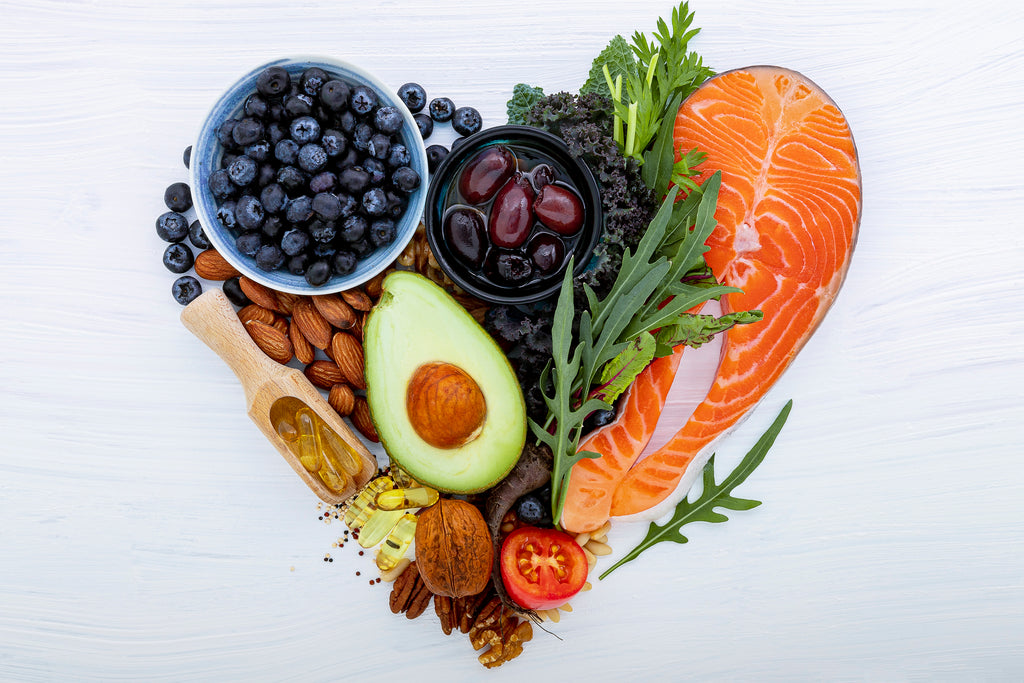
Boost Your Antioxidant Levels Naturally With Taut
Taut Bright is a powerful supplement that contains 8 incredible antioxidants that help protect against premature aging due to free radical damage, helping to prevent and reduce the visibility of wrinkles, dark spots, and fine lines.
These antioxidants are glutathione, olive leaf extract, artichoke leaf extract, grape seed extract, alpha-lipoic acid, L-cysteine, and vitamin C. These awesome ingredients work together to keep your liver balanced and detoxed, and your complexion bright and radiant as a result.
6. Feed Your Body Thiols
Thiols have been well studied as antioxidant supplements that can improve performance and reduce oxidative stress.
7. Take Supplements
Supplements can be helpful in a detox. Here's a breakdown of some of our favorite supplements:
- Turmeric – This popular spice has incredible anti-inflammatory and antioxidant properties that can benefit the whole body.
- Chlorella – This is a form of green algae that binds to heavy metals to help detox.
- French pine bark – The many benefits of this supplement include reduction in fine lines and wrinkles, strengthened immune system, and improved nutrient absorption.
- Artichoke leaf – Studies show that artichoke leaf is beneficial in the treatment of nonalcoholic liver disease.5
- Grape seed extract – A potent antioxidant, grape seed extract helps protect against free radical damage to keep your complexion healthy and youthful.
- Olive leaf extract – Studies have shown this substance can reduce liver damage.6
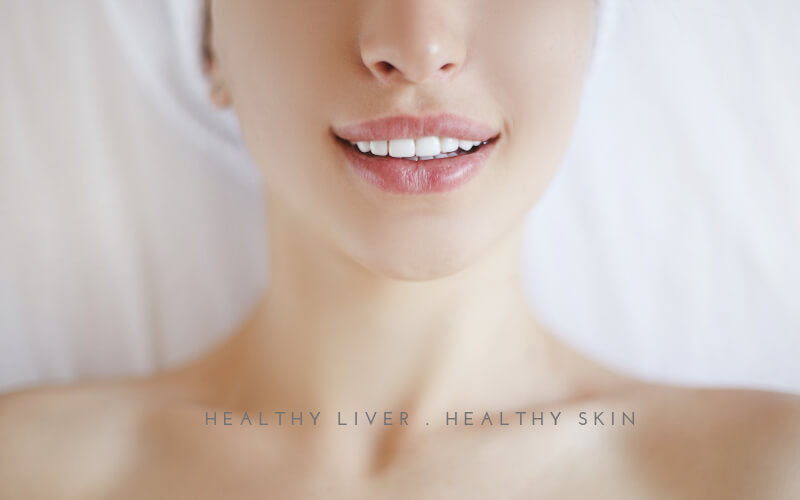
Look & Feel Like Ms. Magnifique Once More...
At Taut, we believe that the key to a beautiful, radiant complexion is to adopt a lifestyle that keeps your mind and body healthy. While a balanced diet and regular exercise will have a positive impact on your skin, we want to help you take your complexion to the next level with the right supplements.
That's where our Ms. Magnifique Transformation Program comes in.
Formulated to revitalize tired skin and fade away pigmentation, our program includes Taut® Premium Collagen Advanced Formula liquid collagen drink, Taut® Collagen Masks, and Taut® Bright.
Featuring 13,000mg of the finest quality marine collagen, as well as hyaluronic acid, grape seed extract, and vitamin C, our liquid collagen will boost your natural collagen production while super-hydrating your dermis from within.
Our Taut Collagen Mask contains hydrolyzed marine collagen, hyaluronic acid, squalene, and vitamin C, all of which work together to soothe and rejuvenate your complexion in just 15 minutes.
Last but not least, Taut Bright is the perfect blend of powerful antioxidants designed to provide your complexion with the protection it needs to stay glowing all year round.
You will feel like a true Ms. Magnifique, and people will be rushing to complement your newfound glow!
Have questions? Get in touch with our team today and they'll be happy to provide you with the information you need to address your skin concerns.
Check out our best reviewed products and see before & after pictures !
References:
- Role Of Liver in Congestive Eczema
- Hepatitis C
- Antioxidants in liver health
- Efficacy of artichoke leaf extract in non-alcoholic fatty liver disease
- Influence of olive and rosemary leaves extract


